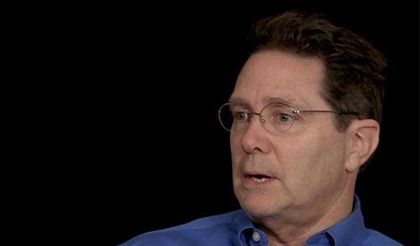Addictions: “When we exceed God’s boundaries, we essentially are saying ‘yes’ to death”
Counsellor and author Ed Welch: “Our goal as people who have known Christ is to love Jesus above all else, and in that, there is freedom to love other things well, and to know when to say no”.
FOCL · WISLA (POLAND) · 16 JULY 2018 · 17:00 CET

Addictions are on the increase today. The access to alcohol, drugs, pornography, pain killers, etc, is easier and faster than never before.
What is addiction? What does the Scripture have to say about addictive behaviour? How can God's Word offer a way out of the darkness of addictions?
According to Ed Welch, counsellor and teacher at the Christian Counseling & Educational Foundation, “typically, addictions are desires that engage physical pleasures in some way”, and that is why “pornography is certainly one of the prime addictions today”.
“Addiction is going outside the prescribed boundaries that God gives to His people”, because “something has become life itself for us; we worship it, it controls us”, Welch said in an interview during the European Leadership Forum in Wisla (Poland).
According to the counsellor, “whether we are Christians or non-Christians, we know there are things out there that are not necessarily good for us, and to learn to say no to those things is really a essential feature of wisdom”.
“Our goal as people who have known Christ is to love Jesus above all else, and in that, there is freedom to love other things well, and to know when to say no to other things”, he pointed out.
Welch explained that when Jesus was tempted in the wilderness, He “did 2 things: He demonstrates that He is indeed the worthy representative of the new humanity, and that, if we have the power of His Spirit, we are empowered in a new way to say no”.
Read the full interview below.

Question. What is an addiction and why do we become addicts?
Answer. Ephesians 4 talks well about the nature of addictions, it says that we give ourselves over to our desires ad it does not end. It is one of the most frightening passages in the Scriptures.
The myth is that there is something good out there, if I just can have it once, it will be satisfying. But it never works that way.
We try it once and maybe we find it satisfying, and if we find it satisfying, we want more of it and we do it a second time, a third time.
If it was not satisfying enough, we figured if we do it more, maybe it will be more satisfying. We give ourselves to our desires, with the continuing desire for more.
Typically, addictions are desires that engage physical pleasures in some way. Alcohol for instance - you feel better, you feel different. Or abuse of prescription drugs that take away pain - your body feels better than it did before. Pornography is certainly one of the prime addictions.
We can be addicted to all kind of things, but physical pleasures tend to be what we specially identify when we talk about modern addictions.
Q. Why is addiction increasing?
A. Addictions are certainly increasing, there is not question about that. Why? Because pornography is something you do not need to sneak in the local drugstore to get it, you do not have to sneak in an adult video store and have people see you in your way out.You just take a click or two and you get it.
There are some kind of addictions where the substances you are after are more easily accessible.
Other kind of addictions are proliferating because pharmacology is continuing to expand. You have alcohol and marijuana, which have been there forever; and then you have heroine, morphine derivatives, oxycodone, and all kinds of chemical variations of painkillers.
We have more access, an easier access to things that make the body feel a little bit different when it is in pain.
Q. How does our desire to resist God’s boundaries encourage addiction?
A. The question really identifies the addict in us all. Addiction is going outside the prescribed boundaries that God gives to His people.
In many ways, that is the story of humanity. Even before the Fall, to be a human meant to live within certain boundaries, and to learn to say no to the desires that go outside those boundaries.
Obviously, that is the original sin, and it continues to be humanity’s inclination.
Whether we are Christians or non-Christians, we know there are things out there that are not necessarily good for us, and to learn to say no to those things is really a essential feature of wisdom.
We are prone to go outside boundaries, and maturity is that prized possession, that the Bible calls self-control, where we learn to say no to our desires.
Q. How does our allegiance to God contradict the pull of addictive behaviour?
A. Addictions mean we love something, we want something. Something has become life itself for us. It becomes more important to us than anything else.
It is a matter of what is our greatest affection, and in that sense, we can see why biblical teaching about idolatry is so relevant. The thing that captures our affection is the thing we worship, the thing that controls us.
Our task is how can we have an affection for someone that exceeds all other affections, not only our affections for pornography, alcohol or drugs, but also the affection for our children, or even for our spouses.
That is our goal as people who have known Christ, to love Jesus above all else. In that, there is freedom to love other things well, and to know when to say no to other things.
Q. How is Jesus’ experience and resistance of temptation relevant to us?
A. Probably, the most important story for understanding humanity is the story of the Garden, where we were told to say no to this and yes to everything else, and we said yes to what we were told to say no to.
That is the beginning of a story where we exceeded boundaries, we essentially said yes to death.
What we see in the Scriptures is essentially the very question, the Lord says: will you trust me, even when your desires are leading you somewhere else? All challenges in life are kind of a test. What we see in the Old Testament is that we failed the test time and time again.
After a while, God does not even test His people, because it is clear that humanity will follow its own desires, rather than the heart of God.
In the midst of that, there has to be a new man, who is a different kind of champion. As a result of that, all the synoptic gospels make a clear point that that champion is going into the wilderness, the place where humanity has failed over and over again.
When He goes into the wilderness, He is going to experience the height of physical difficulties, the height of physical desires, specially being out without food for 40 days. And then Satan himself is going to come and offer Him temptations.
He will do battle with the very words of His Father and nothing more, and that is enough.
In doing that, Jesus does two things: He demonstrates that He is indeed the worthy representative of the new humanity, and He also demonstrates that, if we have the power of His Spirit, the Spirit that was with Him in the midst of the wilderness, we are empowered in a new way to say no where throughout history, before Christ came, people said yes.
ABOUT ED WELCH
Ed Welch holds a PhD in counselling psychology with a neuro-psychology speciality from the University of Utah, as well as an MDiv from Biblical Theological Seminary.
Ed has been counselling and teaching at the Christian Counseling & Educational Foundation for over thirty years and has written many books and articles on biblical counselling including, When People Are Big and God Is Small, Addictions: A Banquet in the Grave, Depression, Running Scared, Shame, Interrupted, and Side by Side: Walking with Others in Wisdom and Love.
He and his wife, Sheri, have two married daughters and eight grandchildren.
Published in: Evangelical Focus - life & tech - Addictions: “When we exceed God’s boundaries, we essentially are saying ‘yes’ to death”
